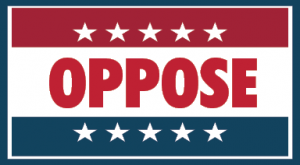 The California Chamber of Commerce is opposing Proposition 45, Proposition 46 and Proposition 47 on the upcoming November election ballot.
The California Chamber of Commerce is opposing Proposition 45, Proposition 46 and Proposition 47 on the upcoming November election ballot.
Proposition 45 gives the state Insurance Commissioner authority to approve individual and small group health insurance rates.
Proposition 46 increases and links to inflation the longstanding pain and suffering cap in medical malpractice lawsuits.
Proposition 47 hampers retailers’ ability to prosecute theft and encourages theft by reducing penalties.
Prop. 45: Health Care Insurance
CalChamber President and CEO Allan Zaremberg has joined the president of the American Nurses Association of California and the chair of the Latino Physicians of California in signing the ballot arguments against Proposition 45.
Under Proposition 45, a single elected politician—the insurance commissioner— could control what benefits and treatment options insurance covers, with virtually no checks and balances to ensure decisions are made to benefit patients and consumers instead of special interests in Sacramento.
Proposition 45 is a duplicative measure that creates more costly bureaucracy. Already there are two other bureaucracies that oversee health insurance rates. The addition of another bureaucracy will cause costly confusion with other regulations and add more red tape to the health care system.
Furthermore, California just established a new independent commission responsible for negotiating health plan rates on behalf of consumers and rejecting health plans if they’re too expensive.
The nonpartisan Legislative Analyst’s Office projects that Proposition 45 could increase state administrative costs tens of millions of dollars per year. These costs ultimately will be paid by consumers.
A provision in Proposition 45 is like one in a 1988 initiative (also opposed by the CalChamber) that news reports say enabled the lawyers sponsoring the measure to make millions of dollars from costly health care lawsuits.
More information is available at www.stophighercosts.org.
Prop. 46: Medical Negligence Lawsuits
Proposition 46 increases the current noneconomic damages cap under the Medical Injury Compensation Reform Act (MICRA). It also imposes new random drug testing requirements on physicians and requires that health care providers review an electronic database of patient prescriptions before issuing new prescriptions.
By quadrupling the limit on medical malpractice awards in California, Proposition 46 will cost consumers and taxpayers hundreds of millions of dollars each year, and cause many doctors and other medical care professionals to quit their practice or move to places with lower medical malpractice insurance premiums.
If medical malpractice awards go up, health insurance companies will raise their rates to cover their increased costs. When health care insurance companies raise their rates, Californians pay more in health care premiums.
The massive expansion of use of the personal prescription drug database threatens Californians’ privacy. The database is controlled by state government. Government websites, including the Department of Motor Vehicles and the Pentagon have been hacked before. No one can assure that the prescription drug database will be secure.
More information is available at www.NoOn46.com.
Prop. 47: Criminal Sentences
Proposition 47 reduces penalties for certain drug and property offenses by requiring they be treated as misdemeanors rather than felonies. It potentially will lead to the release of 10,000 felons from state prison. The measure is opposed by prosecutors, law enforcement and the business community.
California has many laws and programs that allow judges and prosecutors to keep first-time, low-level offenders out of jail if it is appropriate. Proposition 47 would strip judges and prosecutors of that discretion.
Removing this discretion is especially dangerous for California businesses because shoplifting, theft, forgery and fraud—where the value of the stolen goods or forged documents is less than $950—would be misdemeanors.
The language of the measure suggests that even if a person forges multiple documents whose total value exceeds $950, the person could be charged only with a misdemeanor. As a result, reducing penalties for theft, receiving stolen property and forgery could cost businesses and consumers millions of dollars.
San Mateo County District Attorney Steve Wagstaffe put it succinctly when he told the San Jose Mercury-News, “Someone can commit petty theft 10,000 times and we’d still have to always charge it as a misdemeanor.”
More information is available at www.californiapolicechiefs.org/proposition-47.

